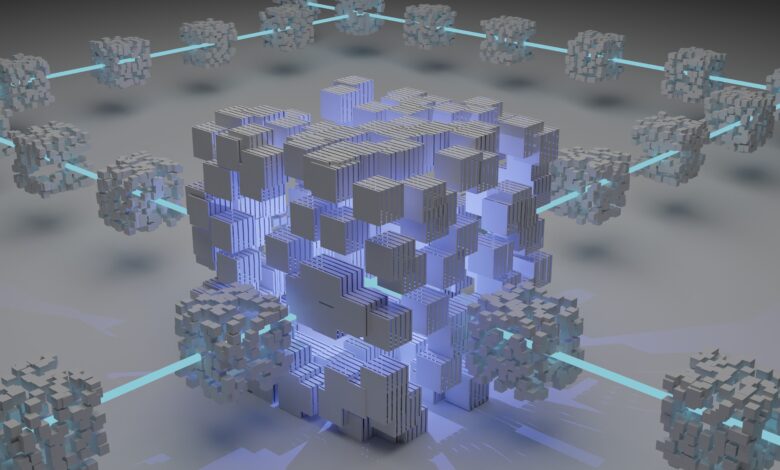What is a Blockchain Address: 1dwycrh5dihrm96ma5degs2hcsds16guxq

A blockchain address is a unique identifier that allows a user to send and receive cryptocurrency. Each blockchain has its own unique address format. The 1dwycrh5dihrm96ma5degs2hcsds16guxq address is a Bitcoin Cash (BCH) address.
1. What is a Blockchain Address?
A blockchain address is similar to a bank account number, and can be thought of as a user’s ID on a blockchain.
A blockchain address is typically a string of characters, and may be generated by a user’s wallet software. Some blockchains use addresses that are shorter than 34 characters, while others use addresses that are longer.
The use of blockchain addresses is not limited to cryptocurrency. Blockchain addresses can also be used to store data on a blockchain, such as smart contracts.
When a user wants to send cryptocurrency to another user, they will need to know the recipient’s blockchain address. The sender will then input the recipient’s address into their wallet software, and the transaction will be broadcast to the network.
Once the transaction is confirmed by the network, the cryptocurrency will be transferred to the recipient’s blockchain address.
2. What is the Purpose of a Blockchain Address?
A blockchain address is a public key that allows others to send cryptocurrency to you. It is also sometimes called a wallet address, public address or simply an address. Your blockchain address can be thought of as your email address – it is what you give to others so they can send you cryptocurrency.
Blockchain addresses are made up of a long string of numbers and letters. They usually start with a ‘1’ or a ‘3’. For example, this is a blockchain address: 1dwycrh5dihrm96ma5degs2hcsds16guxq.
Your blockchain address allows you to receive cryptocurrency from others. You can think of it as your public account number. Just like your bank account number allows others to send you money, your blockchain address allows others to send you cryptocurrency.
You can share your blockchain address with anyone you want to send or receive cryptocurrency from. Your blockchain address is like your email address – it is what you give to others so they can send you cryptocurrency.
It is important to keep your blockchain address safe and secure. If someone else gets access to your blockchain address, they could send cryptocurrency to themselves instead of to you.
If you want to send cryptocurrency to someone, you will need their blockchain address. You can think of this like sending an email to someone – you need to know their email address in order to send them an email. Similarly, you need to know a blockchain address in order to send cryptocurrency to someone.
Blockchain addresses are usually made up of a long string of numbers and letters. They usually start with a ‘1’ or a ‘3’. For example, this is a blockchain address: 1dwycrh5dihrm96ma5degs2hcsds16guxq.
When you want to send cryptocurrency to someone, you will need their blockchain address. You can think of this like sending an email to someone – you need to know their email address in order to send them an email. Similarly, you need to know a blockchain address in order to send cryptocurrency to someone.
3. How is a Blockchain Address Created?
A blockchain address is created when a user creates a new blockchain wallet. To do this, the user must generate a new pair of cryptographic keys – a public key and a private key. The public key is like a bank account number, and the private key is like a PIN number.
The public key is used to create the blockchain address, which is a hashed version of the public key. The private key is used to sign transactions, so that the blockchain can verify that the transaction is coming from the correct wallet.
Blockchain addresses are usually generated offline, so that the private keys are never exposed to the internet. This makes them much more secure than traditional online wallets.
4. What is the Structure of a Blockchain Address?
It is similar to a bank account number and is used to send and receive digital assets. Most blockchain platforms use a standard format for addresses, which includes a prefix and checksum.
A blockchain address typically consists of 27-34 alphanumeric characters. The first few characters of the address represent the blockchain platform that the address is associated with. For example, addresses on the Bitcoin network begin with the number 1 or 3. Ethereum addresses begin with 0x.
After the prefix, the rest of the address is composed of a randomly generated string of characters. This string is then run through a checksum algorithm, which produces a checksum. The checksum is then appended to the end of the address.
The checksum is used to verify the integrity of the address. When sending cryptocurrency to an address, the sender can use the checksum to verify that the address is valid. If the checksum does not match, the address is invalid and the transaction will be rejected.
Blockchain addresses are not case sensitive, but they typically contain lowercase letters and numbers. Some platforms may also allow upper case letters and special characters.
5. How do Blockchain Addresses Work?
A blockchain address is a unique identifier that allows a user to transact on a blockchain network. A blockchain address is similar to a bank account number or an email address, and can be used to send or receive tokens or other digital assets.
A blockchain address is typically a string of characters that is generated using a public key. A public key is a piece of code that is used to encrypt information. A blockchain address can also be generated using a private key, which is a piece of code that is used to decrypt information.
When a user wants to send tokens or other digital assets to another user, they will typically use the other user’s blockchain address. The transaction will then be recorded on the blockchain, and the tokens will be transferred to the other user’s blockchain address.
Blockchain addresses are typically generated using a software wallet. A software wallet is a piece of software that allows a user to store, send, and receive tokens or other digital assets. Some software wallets also allow a user to view their transaction history and balances.
6. Are Blockchain Addresses Secure?
When it comes to blockchain addresses, there are two main types of addresses that you need to be aware of. These are public addresses and private addresses. In this article, we will be discussing public addresses and whether or not they are secure.
A public address is the address that is used to receive cryptocurrency. This is the address that you give to people when you want them to send you cryptocurrency. A private address is the address that is used to send cryptocurrency. This is the address that you use when you want to send cryptocurrency to someone else.
When it comes to security, public addresses are much more secure than private addresses. This is because public addresses are not stored on the blockchain. This means that they cannot be hacked or stolen. Private addresses, on the other hand, are stored on the blockchain. This means that they can be hacked or stolen.
One of the best ways to keep your public address safe is to use a paper wallet. A paper wallet is a piece of paper that has your public address printed on it. This will ensure that your public address is never stored on the blockchain.
In conclusion, public addresses are much more secure than private addresses. If you are looking to keep your cryptocurrency safe, then you should use a paper wallet.
7. What are the Benefits of Using a Blockchain Address?
A blockchain address is a unique identifier that allows a user to send and receive cryptocurrency. Blockchain addresses are also sometimes called wallet addresses.
Each blockchain has its own unique way of generating addresses, but most follow a similar pattern. For example, on the Bitcoin blockchain, a user’s address is a hashed version of their public key. Ethereum addresses are a little different – they’re actually the last 20 bytes of the Keccak-256 hash of the public key.
Blockchain addresses are usually displayed as a string of alphanumeric characters. For example, a Bitcoin address might look like this: 1BvBMSEYstWetqTFn5Au4m4GFg7xJaNVN2.
While blockchain addresses are typically used to send and receive cryptocurrency, they can also be used to store data on a blockchain. For example, the Ethereum blockchain allows users to store data on so-called ” smart contracts.”
There are several benefits of using a blockchain address. First, it allows users to remain anonymous. Since addresses are not tied to a user’s real-world identity, it’s difficult for anyone to track a user’s activity.
Second, blockchain addresses are immutable. Once an address is generated, it cannot be changed. This makes it impossible for someone to hack a user’s address and steal their cryptocurrency.
Third, blockchain addresses are easy to use. All a user needs is an address and a cryptocurrency wallet to send and receive cryptocurrency.
Fourth, blockchain addresses are secure. Thanks to cryptographic hashing, it’s impossible for someone to guess a user’s address.
Lastly, blockchain addresses are global. They can be used by anyone, anywhere in the world.
Overall, blockchain addresses offer a number of advantages. They’re anonymous, secure, and easy to use. They’re also global, which makes them ideal for sending and receiving cryptocurrency.
8. What are the Disadvantages of Using a Blockchain Address?
A blockchain address is a public key that allows someone to send you cryptocurrency. It’s similar to an email address – you can share your blockchain address with anyone who wants to send you money, and they can do so using that address.
Your blockchain address is also your username on the network. Every transaction you make is associated with your blockchain address, and it’s how other users can send you money.
While a blockchain address is similar to an email address, there are some key differences. First, your blockchain address is not your real-world identity. In fact, it’s pseudonymous – meaning that it can’t be traced back to you in the real world.
This is one of the key advantages of using cryptocurrency – it allows you to transact without revealing your real-world identity. However, it also has some disadvantages, which we’ll discuss below.
8 Disadvantages of Using a Blockchain Address
1. Blockchain addresses are not private
While your real-world identity is not attached to your blockchain address, all of your transactions are public. This means that anyone can see how much money you’ve sent and received, and they can also see your transaction history.
If you’re concerned about privacy, this may not be the ideal way to transact. There are some ways to increase your privacy, such as using a VPN or a privacy-focused cryptocurrency, but these come with their own set of risks and disadvantages.
2. Blockchain addresses can be spoofed
Since blockchain addresses are not attached to your real-world identity, it’s possible for someone to send money to the wrong address. If you give someone your blockchain address and they mistype it, the money could be lost forever.
There’s also the risk of someone deliberately spoofing your address in order to steal your money. This is known as a “phishing” attack, and it’s a serious threat that you need to be aware of.




